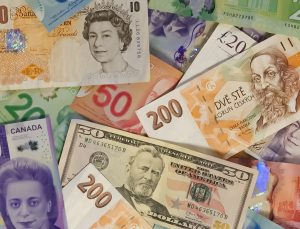Forex trading is a 24-hour market that operates around the clock from Monday to Friday. This means that traders can trade currencies at any time of the day or night, depending on their preferences and trading strategies. However, there are certain times when the forex market is more active and volatile, and other times when it is quieter and less volatile. In this article, we will explore the different trading sessions and hours of the forex market and explain when forex trading closes.
Forex Trading Sessions
The forex market is divided into four main trading sessions: the Sydney session, the Tokyo session, the London session, and the New York session. Each session has its own unique characteristics and trading hours, and traders can take advantage of the different opportunities that each session offers.
The Sydney session starts at 10:00 PM GMT and ends at 7:00 AM GMT. This session is the least active of all the sessions and is often referred to as the “quiet time” of the forex market. The currency pairs that are most active during this session are the AUD/USD, NZD/USD, and USD/JPY.
The Tokyo session starts at 12:00 AM GMT and ends at 9:00 AM GMT. This session is more active than the Sydney session but is still relatively quiet compared to the other sessions. The currency pairs that are most active during this session are the USD/JPY, EUR/JPY, and AUD/USD.
The London session starts at 8:00 AM GMT and ends at 5:00 PM GMT. This session is the most active session of the forex market and is often referred to as the “heart of the forex market.” The currency pairs that are most active during this session are the GBP/USD, EUR/USD, and USD/CHF.
The New York session starts at 1:00 PM GMT and ends at 10:00 PM GMT. This session is also very active, but it is not as busy as the London session. The currency pairs that are most active during this session are the USD/CAD, USD/JPY, and EUR/USD.
When Does Forex Trading Close?
Forex trading technically never closes, as the market operates 24 hours a day from Monday to Friday. However, there are certain times when the market is less active and volatile, and other times when it is more active and volatile.
The forex market is closed on weekends, which means that traders cannot trade currencies on Saturdays and Sundays. However, there are some exceptions to this rule, such as the forex market in the Middle East, which operates on Sundays instead of Fridays.
There are also certain holidays and events that can affect the forex market’s trading hours. For example, the forex market in the United States is closed on Independence Day, Thanksgiving Day, and Christmas Day. Other countries also have their own public holidays and events that can impact the forex market’s trading hours.
In conclusion, forex trading is a 24-hour market that operates from Monday to Friday. Traders can trade currencies at any time of the day or night, depending on their preferences and trading strategies. However, there are certain times when the forex market is more active and volatile, and other times when it is quieter and less volatile. Traders should be aware of the different trading sessions and hours of the forex market to take advantage of the opportunities that each session offers. While forex trading technically never closes, traders should also be aware of holidays and events that can affect the market’s trading hours.






